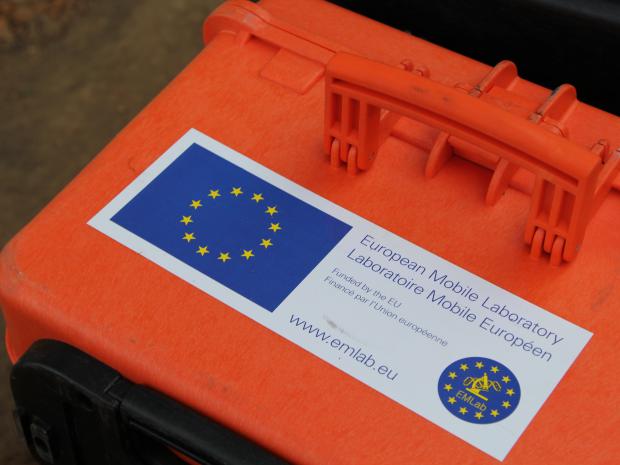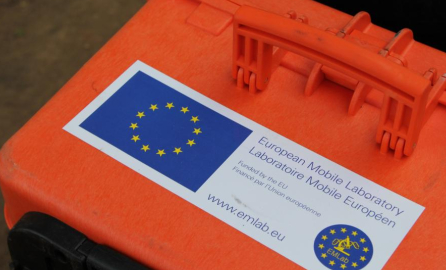About the Project
Background
The EU Mobile Labs project will increase the capacity in Europe and Africa to respond to infectious disease outbreaks, such as the current Ebola outbreak, and will strengthen the collaboration between scientists on both continents.

Over the course of the project, three deployable mobile laboratory units for the detection and diagnosis of infectious pathogens will be put into operational readiness. This modular system is adapted for multinational outbreak response missions in Africa and Europe.
Three laboratory units will be respectively deployed in Irrua (Nigeria), Dar es Salaam (Tanzania), and Munich (Germany). This third unit will be ready to respond to outbreaks that cannot be reached by the two units in Africa.
Scientists from African institutions will be hosted in European research facilities for extensive training. Training activity will not only include the operation of the lab units and equipment itself but also extensive practice of molecular biological and serological methods to conduct interepidemic research projects on infectious diseases.
CRIS contract number: IFS/2011/ 272-372
Sector: Stability and Peace, Public Health
Duration: December 2011-December 2015
EU contribution: EUR 3.4 million
Implementing organisation: Bernhard Nocht Institute for Tropical Medicine (BNITM), Hamburg, Germany
Partners:
- Institute for Lassa Fever Research and Control (ILFRC) - Irrua Specialist Teaching Hospital (ISTH), Irrua, Nigeria
- National Institute for Medical Research (NIMR), Dar es Salaam, Tanzania
- Bundeswehr Institute of Microbiology (InstMikroBioBw), Munich, Germany
- Istituto Nazionale per le Malattie Infettive "L. Spallanzani" (INMI), Rome, Italy
- Publich Health England, Microbiology Services Division-Colindale, London, UK
- Public Health England Microbiology Services-research (Porton), Salisbury, UK
- Institute for Virology, Philipps-University Marburg (PUM), Marburg, Germany
- Laboratoire P4 Inserm Jean Merieux (INSERM), Lyon, France
- Spiez Laboratory, Spiez (Labor-Spiez), Switzerland, Public Health England (PHE)
Target groups:The national authorities and organisations in the countries of the geographical areas to be covered by the project which are responsible for the protection of their population from health threats are the main target group. International organizations working in the same field, local actors and, finally, the civil society are targeted.
Locations: Europe, sub-Saharan Africa.

Objectives:
The overall objective of the project is to set up a collaborative network involving European and African institutions able to operate in common mobile laboratory units during outbreaks of health-threatening pathogens.
The purpose of the project is:
- to improve preparedness;
- to help the African authorities to manage the situation in case of outbreak (rapid identification, first aid measures to minimize the impact of the outbreak, confinement, communication, social and health impact) and to train the local scientific staff.
Main activities of the project:
- Establishment of Mobile Laboratories Network and comprehensive training on capacity building based on the unit to be deployed in the EU
- Deployment of two units in sub-Saharan Africa after the first year (one unit) and the second year (one unit) of the project
